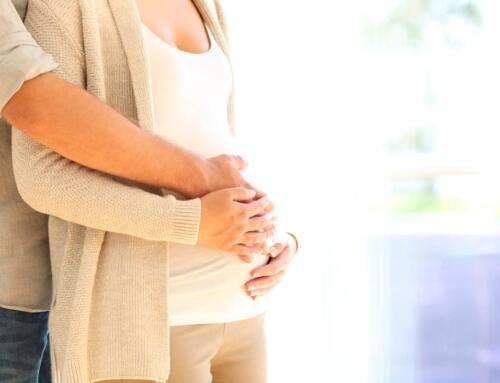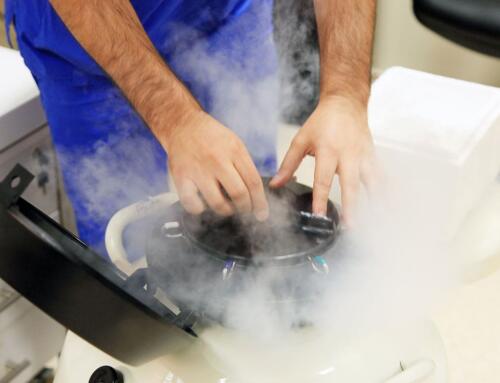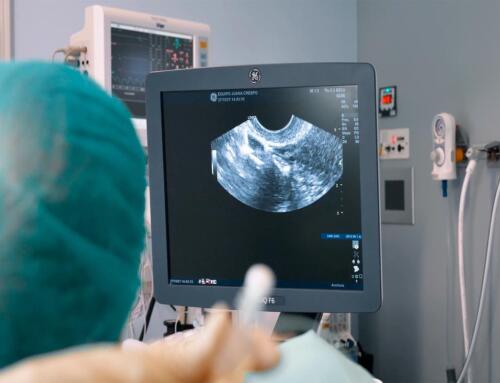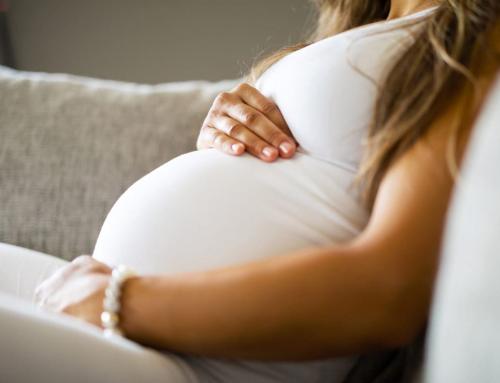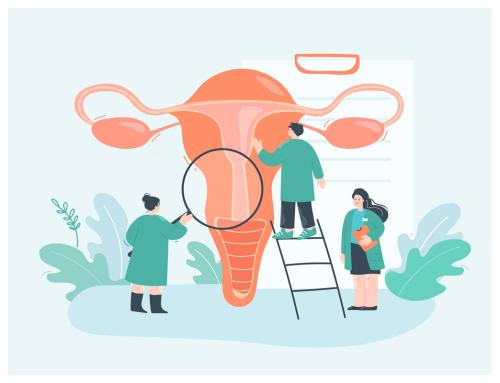A biochemical abortion is a spontaneous abortion that occurs in the earliest stages of pregnancy, usually before the fifth week.
This type of abortion is quite common, occurring in 50-60% of early pregnancies.
In In Vitro Fertilization (IVF) treatments, the risk of a biochemical abortion is reduced to 8%.
Symptoms of a biochemical abortion
In biochemical pregnancies, the sperm fertilizes the egg, the embryo forms, and it implants in the uterus normally.
At this point, the woman begins to synthesize beta-hCG (human chorionic gonadotropin), which is the hormone used as a reference in pregnancy tests.
However, the development of the embryo is interrupted after a few days.
The symptoms after a biochemical abortion are similar to those of a menstrual period.
In fact, only those women who have taken a positive pregnancy test and, after a few days, do not see their beta-hCG increase exponentially as it should, realize it.
Since it is an early interruption of pregnancy, the woman does not experience vomiting, nausea, or fatigue.
In fact, many women believe they have had a heavier period than usual.
In any case, a spontaneous abortion can be associated with:
- Abdominal pain similar to menstrual cramps.
- Bright red vaginal bleeding (which can last from two days to two weeks).
- Expulsion of clots with menstruation.
- Mild contractions and back pain.
Why does a biochemical abortion occur?
Knowing the causes of a biochemical abortion is very difficult. These types of gestational losses are so early that pregnancy cannot be observed by ultrasound, and the remains of the embryo are eliminated with menstruation.
Nevertheless, experts point to the following possible triggers for a microabortion:
- Genetic abnormalities in the embryo.
- Genetic abnormalities in the parents’ egg or sperm.
- Tobacco, alcohol, drug use, etc.
- Stress.
- Anatomical abnormalities in the mother’s uterus.
- Hormonal problems.
- Infections in the female reproductive tract.
Risk factors: is it possible to prevent biochemical abortions?
Some patients ask us how to prevent a biochemical abortion.
However, we do not have an answer for them.
Generally, these types of abortions are caused by chromosomal abnormalities in the embryo or gametes.
And in this regard, there is nothing to prevent. Let’s say it’s a process of “natural selection,” as often the development of the embryo would be incompatible with life.
When there are several recurrent abortions (this term encompasses the spontaneous loss of two or more pregnancies before the 20th week), it is advisable to look for the causes to find a solution or resort to assisted reproduction techniques.
There are also basic recommendations to reduce the risk of abortion in the early stages of pregnancy, such as leading a healthy lifestyle, avoiding tobacco, alcohol, or drug use, eating a balanced diet, exercising regularly, reducing stress, or managing chronic diseases.
Consuming iron-rich foods and folic acid supplements also prevent microabortions.
On the other hand, there are some factors that can increase the risk of biochemical abortion, including:
- Maternal age (these types of abortions are more common in women over 35).
- Chronic diseases such as diabetes or lupus.
- Endometriosis or scar tissue in the uterus.
- Previous abortions.
The period after a biochemical abortion
Some women are concerned about when they will ovulate after having a biochemical abortion.
Usually, the period may be slightly delayed (one or two weeks), and the menstrual cycle will naturally regulate.
For a new ovulation to occur, it is essential that the woman’s hormone levels return to baseline values.
Therefore, ovulation would occur between four and five weeks after the loss.
However, it all depends on the week in which the interruption occurred, whether there were complications or if the woman knew she was pregnant, as it is important to recover physically and emotionally.
Trying to conceive after a biochemical abortion
After experiencing any type of abortion, it is normal for the woman or the couple to be concerned about their fertility and how long they should wait to try again.
In theory, biochemical abortions do not reduce your chances of conceiving.
👉 We recommend consulting: Probabilities of pregnancy after an abortion
On the other hand, despite the good prognosis (80% of women who have experienced it become pregnant again without any complications), sometimes it is inevitable to feel a sense of loss or defeat in this process.
Our recommendation is to consult with a doctor or a specialized professional to understand the real implications of a biochemical pregnancy and keep fighting until you achieve your goal: having a healthy baby at home.
Regarding the waiting time, unlike other types of abortions, in this case, you can try for a new pregnancy soon.
If your cycle resumes normally, you can try after two menstruations.
If this situation has affected you greatly, it may be advisable to wait three to six months to be fully emotionally recovered before seeking a new pregnancy.



